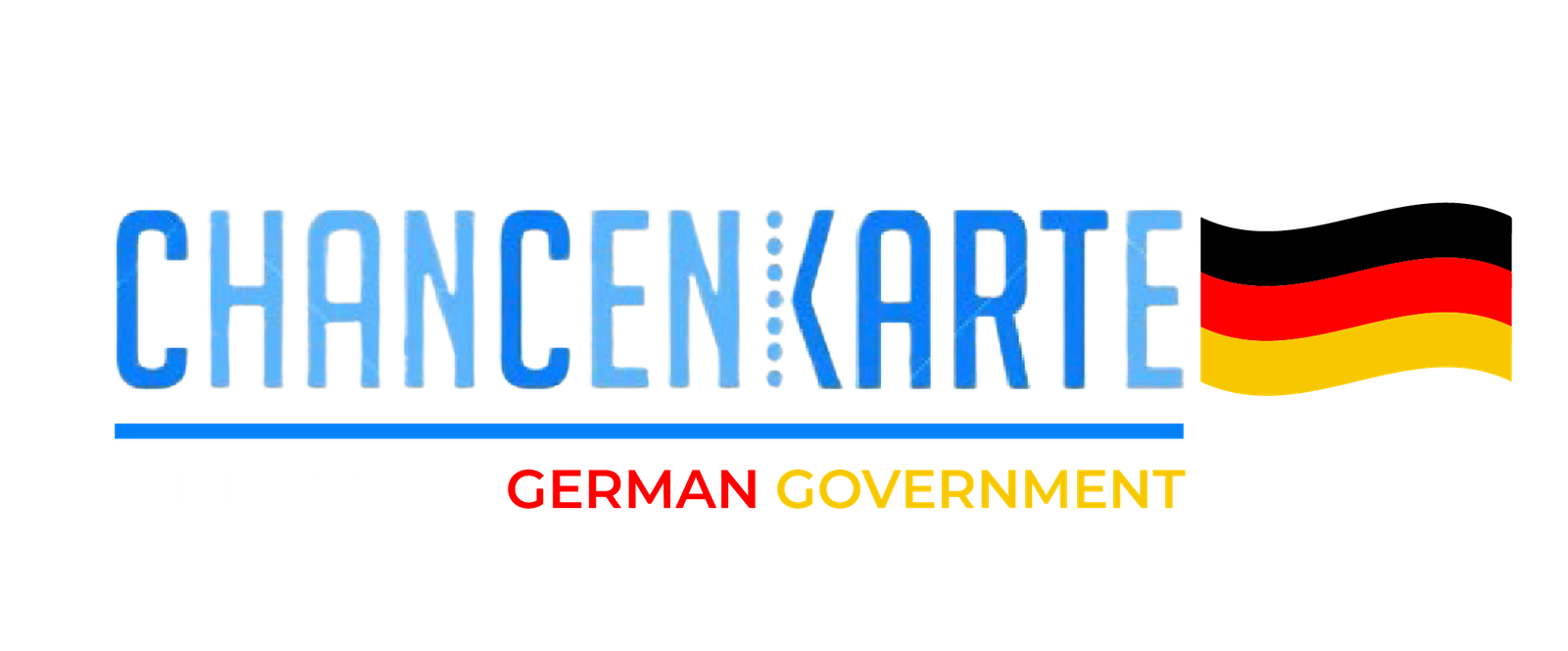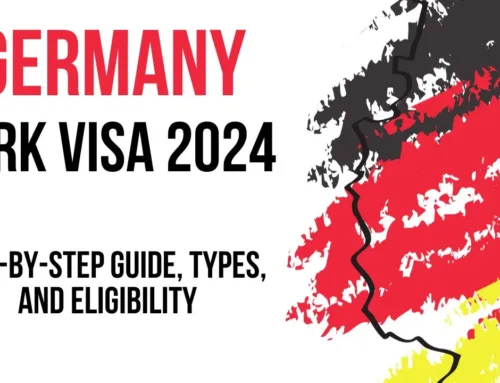Germany Chancenkartes: A Gateway for Skilled Workers from Non-EU Countries
Germany Chancenkartes, or “Opportunity Card,” is a significant initiative to attract qualified individuals from non-EU countries. With Germany facing a shortage of skilled workers in many industries, this card provides a structured and supportive pathway for foreign nationals to live and work in Germany. In this article, we will explore the benefits of the Chancenkarte, how it simplifies immigration, its work-related provisions, and its broader impact on Germany’s labor market.
1. Introduction to Chancenkartes
The Chancenkartes is part of Germany’s long-term strategy to address workforce shortages by opening doors for skilled professionals from outside the European Union (EU). This card not only facilitates easier access to employment opportunities but also provides a structured way for individuals to transition into German society.
2. Simplifying Immigration for Foreign Workers
One of the main goals of the Chancenkartes is to simplify the immigration process for non-EU nationals. This visa program reduces the bureaucratic obstacles that often make the transition to a new country complicated. By streamlining administrative processes, the Chancenkarte ensures that professionals can focus on their job search and settle into their new environment without unnecessary delays.
)
Key Points:
- Less paperwork compared to traditional visa processes.
- Faster approval times.
- Support for a legal stay while job-hunting.
For a more detailed breakdown of the visa application process, you can check the German Immigration Portal.
3. Providing Extended Work Opportunities
The Chancenkartes allows foreign nationals to reside in Germany for up to one year while searching for employment. This extended time is a significant improvement over traditional visas, which may only allow for short stays that don’t provide sufficient time for individuals to secure jobs that match their skill sets.
4. Allowing Part-time Employment
A unique feature of the Chancenkartes is its part-time employment provision during the job-seeking period. This allows foreign workers to earn an income and gain experience while they look for full-time opportunities. This financial flexibility ensures that workers are not under pressure and can integrate more easily into the local job market.
Advantages:
- Supports financial independence during the job search.
- Provides experience in the German job market.
- Aids in understanding German workplace culture.
5. Easing Integration into German Society
The Chancenkartes does more than offer job opportunities; it also helps foreign nationals integrate into German society. Through employment, social services, and professional networks, holders of the Chancenkartes can acclimate to life in Germany, enhancing their chances of long-term success.
Social Integration Support:
- Access to language courses and integration programs.
- Networking opportunities with professionals in similar fields.
- Guidance on adapting to the German work environment.
6. Chancenkarte and the German Economy
Germany is currently experiencing labor shortages in several key sectors, including technology, healthcare, and engineering. By attracting skilled workers through the Chancenkartes, Germany can address these shortages and stimulate economic growth. The influx of talented professionals not only fills vacant positions but also brings innovation and new perspectives to German industries.
7. Eligibility Criteria for Chancenkarte
To apply for the Chancenkartes, individuals must meet certain criteria that ensure they are qualified to work in Germany. The key eligibility requirements include:
- Proof of Qualifications: Foreign nationals must demonstrate their skills through degrees, certifications, or relevant experience.
- German Language Proficiency: While fluency is not always required, a basic understanding of the language improves job prospects.
- Age and Experience: Applicants are often required to fall within a certain age range and possess relevant work experience in their field.
8. Required Documentation and Application Process
Applicants need to gather essential documents to apply for the Chancenkartes, including:
- A valid passport.
- Proof of educational qualifications or work experience.
- Health insurance coverage.
- Evidence of financial support (to ensure the applicant can sustain themselves during their job search).
The application process itself is relatively straightforward, but it’s advised to consult the German immigration authorities or use the services of an immigration lawyer to ensure everything is in order.
9. Unique Pathway to Residency
One of the most attractive features of the Chancenkarte is its potential to serve as a pathway to permanent residency. While the initial visa is temporary, foreign nationals who secure a full-time job can apply for permanent residency after a few years, depending on the type of job and their overall integration into German society.
10. Benefits for Foreign Workers
The Chancenkarte offers numerous benefits to foreign workers, including:
- The opportunity to work and live in one of Europe’s strongest economies.
- The ability to bring family members to Germany under family reunification programs.
- Access to Germany’s healthcare, education, and social systems.
11. How Chancenkarte Compares to Other Visas
In comparison to other types of visas, such as work visas or EU Blue Cards, the Chancenkarte stands out for its flexibility. It does not require a job offer at the time of application, unlike other visas that are tied to specific employment contracts. For more details on the differences between the Chancenkarte and the EU Blue Card, visit the European Commission Migration and Home Affairs page.
12. Challenges Faced by Chancenkarte Holders
While the Chancenkarte offers many benefits, there are some challenges that applicants should be aware of:
- The job search process may take longer than anticipated.
- High competition for certain positions in specialized fields.
- Language barriers may limit job opportunities, especially in smaller companies.
13. Future Outlook of Chancenkartes
With global competition for skilled labor intensifying, the Chancenkartes represents Germany’s proactive approach to attracting top talent. The success of this program could serve as a model for other European countries facing similar labor shortages.
14. Conclusion
The Chancenkartes is more than just a visa; it is a comprehensive support system for international workers looking to make Germany their new home. By simplifying the immigration process, providing job opportunities, allowing part-time employment, and offering a unique pathway to residency, the Chancenkartes plays a crucial role in assisting foreign workers in Germany.
15. FAQs about Chancenkarte
Q1: Can I bring my family to Germany with the Chancenkarte? Yes, family reunification is possible under certain conditions, allowing your spouse and children to join you in Germany.
Q2: What happens if I don’t find a job within one year? If you are unable to find a job within the allowed period, you may need to leave Germany or apply for an extension under specific circumstances.
Q3: Do I need to know German to apply for the Chancenkarte? While it’s not mandatory to be fluent in German, knowledge of the language significantly improves your chances of securing employment.
Q4: Can the Chancenkarte lead to permanent residency? Yes, after securing employment and meeting certain criteria, you can apply for permanent residency in Germany.
Q5: How does the Chancenkarte compare to the EU Blue Card? The Chancenkarte allows job seekers to enter Germany without a job offer, while the EU Blue Card requires applicants to already have an employment contract.



